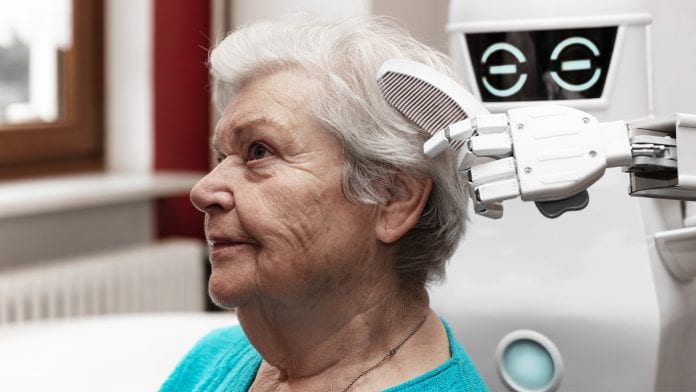
A new research programme, launched by the British government, will aim to make autonomous systems safe and trustworthy for public use.
The £33.9m (~€39.3m) research will be conducted over 5 years. The project plans to develop a sophisticated ‘care robot’ which could be deployed to assist the elderly. These robots will take on challenges like helping people up after a fall, making sure medication is taken and delivering meals. The use of ‘care robots’ will hopefully reduce the possibility of people taking advantage of an already vulnerable group of individuals.
As the UK faces an aging population, the government published a statement suggesting that by 2040, one in seven people are expected to be over the age of 75. Due to this it is important for the government to have a reliable and safe care system.
Authorities have already invested in a similar project called CHIRON. The scheme ran between 2016 and 2018 with the Bristol Robotics Laboratory acting as one of its key technology partners.
Praminda Caleb-Solly, from the Bristol Robotics Laboratory, said that providing an assistive robot could give “essential support for those who need help carrying out everyday tasks” enabling people to “maintain their independence for as long as possible.”
“But making sure we can trust these robots by reducing the risks associated with this technology is essential,” Caleb-Solly added. “Unlocking their full potential means they could assist with anything from physiotherapy to assistance for older people with mobility issues, improving people’s quality of life significantly.”
Science Minister Chris Skidmore said: “A staggering one in seven people in the UK are now expected to be over 75 years old by 2040. As our society ages, most of us will have to care for a loved one, whether it’s a grandparent or a parent or a partner.
“It’s vital that we meet the needs of this ageing society, and through cutting edge research like this we will ensure that as technology advances, the UK leads the way in designing and adopting it, growing our status as a global science superpower.”







